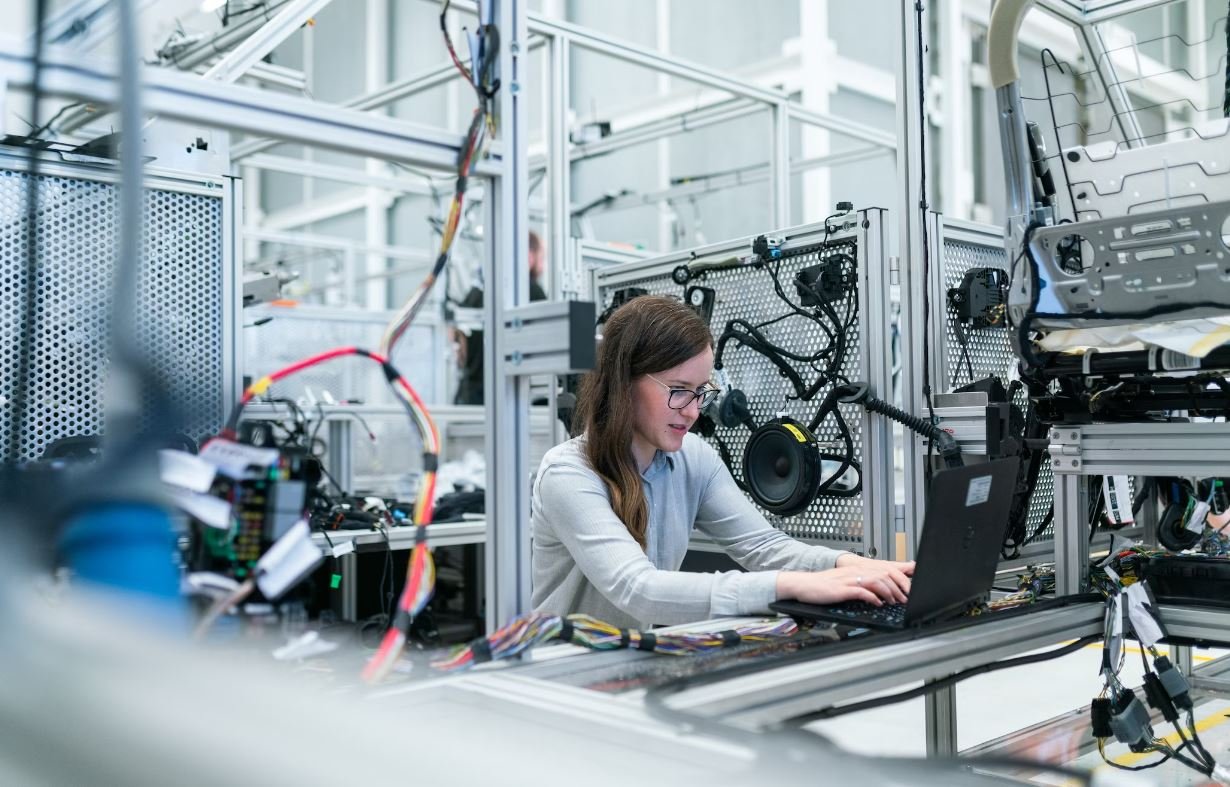Google’s AI Clones Your Voice
Artificial Intelligence (AI) technology continues to advance at a rapid pace, with Google’s latest development, known as ‘Voice Cloning.’ This cutting-edge technology now allows Google’s AI system to mimic and recreate human voices with astonishing accuracy and naturalness. While this innovation presents fascinating possibilities, it also raises important questions regarding privacy, identity, and the potential misuse of such capabilities.
Key Takeaways:
- Google’s AI enables the cloning of human voices using advanced machine learning techniques.
- Voice Cloning raises concerns regarding privacy, identity theft, and potential misuse.
- The technology has potential applications in voice assistants, entertainment, and accessibility.
Voice Cloning operates through a process called ‘text-to-speech synthesis,’ where AI algorithms analyze and learn from a person’s voice patterns, intonations, and speech characteristics. By training on massive audio datasets, Google’s AI can create a ‘voice model’ that accurately reproduces the unique nuances and vocal qualities of a specific individual.
**This breakthrough technology has far-reaching implications.** For instance, it could enhance voice assistants by providing a more personal and indistinguishable interaction experience. It also opens up exciting opportunities in the entertainment industry, allowing actors to lend their voices to characters long after they’ve passed away. Furthermore, Voice Cloning can greatly benefit individuals with speech impairments, offering them a chance to communicate with their own voice.
Voice Cloning: Privacy Concerns and Misuse
With great power comes great responsibility, and Voice Cloning is no exception. The ability to replicate someone’s voice accurately raises significant privacy concerns. **Imagine a malevolent actor imitating your voice to manipulate others or fabricate damaging evidence.** This technology could also potentially facilitate identity theft, voice phishing, or other malicious activities. It is crucial to establish ethical guidelines and safeguards to prevent these abuses.
The potential for misuse is not limited to individuals, as **Voice Cloning can also be employed to deceive voice recognition systems or manipulate audio evidence in legal proceedings**. This aspect highlights the urgency for industry regulations and legal frameworks to address the risks associated with this technology.
Possible Applications of Voice Cloning
While there are legitimate concerns surrounding Voice Cloning, the technology also holds immense potential for beneficial applications. Here are some areas where Google’s AI voice cloning technology can make a positive impact:
- Enhancing voice assistants: Voice Cloning has the potential to make interactions with virtual assistants more personal, dynamic, and engaging.
- Preserving cultural heritage: By allowing the recreation of deceased individuals’ voices, Voice Cloning could help preserve historical figures’ voices for educational purposes.
- Assistive technology: Individuals with speech impairments can benefit from Voice Cloning to communicate using a voice similar to their own.
Voice Cloning: Data and Statistics
| Year | Voice Cloning Market Value (USD) |
|---|---|
| 2018 | $456 million |
| 2019 | $678 million |
| 2020 | $912 million |
According to industry reports, the Voice Cloning market is growing rapidly, with millions of dollars invested in research and development each year. The technology’s value has increased significantly, showcasing its potential in various sectors.
| Institution | Description |
|---|---|
| OpenAI | Research organization focused on developing safe and ethical AI technologies. |
| University X | Leading academic institution conducting research on text-to-speech synthesis and voice cloning techniques. |
| Company Y | Tech company specializing in voice cloning solutions for commercial applications. |
The above table demonstrates some key entities and organizations at the forefront of Voice Cloning research and development. These institutions are actively working on creating better and more sophisticated voice cloning algorithms.
Conclusion
Google’s AI Voice Cloning technology has immense potential to reshape various industries and improve accessibility. However, this breakthrough also raises significant ethical and privacy concerns. It is crucial for researchers, policymakers, and technology companies to collaborate and establish guidelines and regulations that balance innovation with accountability.

Common Misconceptions
Misconception: Google’s AI Can Perfectly Clone Your Voice
One common misconception is that Google’s AI technology can flawlessly clone anyone’s voice. While the AI has made significant advancements in voice synthesis, it still has limitations.
- The AI cannot capture the full range of human voice intricacies.
- Accents and speech patterns may not be accurately reproduced.
- Distinctive vocal characteristics unique to individuals can be challenging to replicate.
Misconception: Google’s AI Can Easily Imitate Any Language Dialect
Another misconception is that Google’s AI can effortlessly imitate any language dialect. However, this is not entirely accurate.
- The AI may struggle to mimic lesser-known or rare dialects.
- Variances in regional accents may not be accurately reproduced.
- Complex linguistic nuances can be difficult for the AI to capture.
Misconception: Google’s AI Can Replicate Emotions in Speech
Many believe that Google’s AI can replicate emotions in synthesized speech, but this is not entirely true.
- The AI may lack the ability to accurately convey subtle emotional nuances.
- Inflections and intonations can appear artificial or forced.
- Expressing sarcasm or irony can be challenging for the AI.
Misconception: Google’s Voice Cloning AI Can Be Used for Any Purpose
Some people mistakenly assume that Google’s voice cloning AI can be used for any purpose without any ethical concerns.
- Unauthorized use of someone’s voice without consent is a violation of privacy.
- The potential for misuse and unethical practices exists.
- Legitimate concerns regarding voice fraud and identity theft arise.
Misconception: Google’s AI Clones Your Voice Instantly
Lastly, there is a misconception that Google’s AI can clone your voice instantly. However, this is not entirely accurate.
- The process of cloning voice requires training the AI with sufficient voice samples.
- Generating an accurate voice clone may take time and numerous iterations.
- The quality of the voice clone improves as more data is processed.

Understanding Google’s AI Voice Cloning Technology
Google has made significant advancements in the field of artificial intelligence, especially in the domain of voice cloning. With the ability to mimic human speech and intonation, this technology has vast potential to revolutionize various applications such as voice assistants, audiobooks, and even personalization of synthetic voices. The following tables shed light on some intriguing aspects of Google’s AI voice cloning technology.
The Impact of Google’s AI Voice Cloning
Google’s AI voice cloning technology has the potential to transform a multitude of industries, providing exciting opportunities for both businesses and consumers alike. The following table highlights the wide range of sectors that could benefit from this breakthrough:
| Sector | Potential Application |
|---|---|
| Entertainment | Creation of personalized voice actors |
| Accessibility | Assisting people with speech impairments |
| Education | Generating interactive audio content for learners |
| Virtual Assistants | Creating lifelike AI assistants |
The Science Behind Google’s AI Voice Cloning
Google’s AI voice cloning technology relies on sophisticated machine learning algorithms to capture and replicate the unique nuances of human speech. The following table illustrates the technical components of this cutting-edge technology:
| Component | Description |
|---|---|
| Neural Networks | Mimics human speech patterns and accents |
| Voice Samples | Large dataset of recorded human voices |
| Training Data | Annotated voice recordings used to train the AI models |
| Tacotron | Generation of synthetic speech from text input |
Applications of Google’s AI Voice Cloning Technology
Google’s AI voice cloning technology has numerous practical applications that span beyond traditional voice recognition systems. The table below presents a glimpse of the diverse uses of this groundbreaking technology:
| Application | Description |
|---|---|
| Voice Over Services | Instant creation of professional voiceovers |
| Language Learning | Authentic pronunciation practice for language learners |
| Audiobooks | Generation of audio versions with customizable voices |
| Localization | Efficient adaptation of speech for different regions |
Licensing and Privacy Concerns
While Google’s AI voice cloning technology holds great promise, it also raises certain legal and privacy concerns. The following table outlines some key factors related to licensing and privacy:
| Aspect | Description |
|---|---|
| Intellectual Property | Negotiate licensing agreements for voice actor rights |
| Data Privacy | Ensure user data is protected and consent obtained |
| Regulations | Compliance with laws governing voice recording and usage |
| Fraud Prevention | Develop safeguards to prevent voice-based impersonation |
Challenges and Future Developments
While Google’s AI voice cloning technology represents a significant breakthrough, it is not without its challenges. The table below presents some hurdles that need to be overcome, as well as future developments:
| Challenge | Possible Solution |
|---|---|
| Voice Emotional Range | Enhance emotional expressiveness of synthetic voices |
| Accent Variations | Improve ability to accurately replicate diverse accents |
| Real-Time Processing | Minimize latency for instantaneous voice cloning |
| Customization Options | Allow users to personalize synthetic voices further |
Public Perception of AI Cloned Voices
Adoption and acceptance of AI cloned voices in mainstream applications could be impacted by public perception. The following table highlights key factors that influence public reception:
| Factor | Impact |
|---|---|
| Uncanny Valley | Resistance to voices that are neither fully human nor robotic |
| Audio Authenticity | Demand for voices that sound natural and believable |
| Trust in Technology | Building confidence in AI voice cloning systems |
| Social Perception | Influence of media, culture, and social biases on acceptance |
Potential Ethical Considerations
As with any emerging technology, AI voice cloning brings ethical considerations that need careful examination. The following table highlights relevant ethical concerns:
| Ethical Concern | Implications |
|---|---|
| Identity Theft | Potential misuse of cloned voices for fraudulent purposes |
| Manipulation | Ability to deceive through synthetic voices |
| Consent and Privacy | Ensuring user consent and respect for privacy |
| Equal Access | Addressing disparities in voice cloning technology availability |
Conclusion
Google’s AI voice cloning technology represents a significant breakthrough, opening up new possibilities for various industries and consumers. From personalized voice actors to language learning and audio content creation, this technology has immense potential. While challenges in emotional expressiveness and accent replication remain, advancements in real-time processing and customization options hold promise for the future. However, the technology also raises concerns related to licensing, privacy, public perception, and ethics. As AI voice cloning continues to evolve, robust frameworks and regulations are essential to ensure responsible and beneficial utilization in the era of artificial intelligence.
Google’s AI Clones Your Voice
FAQ
Question 1:
What is Google’s AI Cloning Your Voice?
Google’s AI Clones Your Voice is a technology developed by Google that uses artificial intelligence to mimic and reproduce an individual’s voice. It analyzes your voice samples to create a virtual clone that can generate speech patterns, intonation, and mannerisms similar to yours.
Question 2:
How does Google’s AI Cloning Your Voice work?
Google’s AI Cloning Your Voice works by employing advanced machine learning algorithms to analyze and understand the unique characteristics of your voice. It collects and processes a large amount of voice data to train a deep neural network model. This model then generates the synthesized voice to mimic your vocal patterns.
Question 3:
Why would I want to clone my voice using Google’s AI?
Cloning your voice using Google’s AI can have various applications. It can be used in voice-over recordings, creating personalized virtual assistants, or enhancing text-to-speech systems with a more natural and familiar voice. It offers greater customization and personalization options for voice-related technology.
Question 4:
Is my privacy at risk if I use Google’s AI to clone my voice?
Google takes privacy concerns seriously, and they have implemented strict measures to protect user data. Cloning your voice using Google’s AI requires your explicit consent and will only use your voice data within the specified purpose. Comprehensive privacy policies ensure that your data is securely stored and not shared without your consent.
Question 5:
Can I control how my cloned voice is used?
Yes, you have control over how your cloned voice is used. Google’s AI Cloning Your Voice allows you to define the purpose and scope of voice cloning. You can choose which applications or services can access your cloned voice and set specific usage permissions.
Question 6:
Can my cloned voice be used for fraudulent activities?
Google actively implements measures to prevent misuse of cloned voices. Extensive security measures and authentication protocols are in place to protect against fraudulent activities. Furthermore, Google monitors and audits the usage of cloned voices to minimize any potential misuse.
Question 7:
Is Google’s AI voice cloning technology perfect?
While Google continues to refine its AI voice cloning technology, it is important to note that no system is entirely perfect. The synthesized voice may not perfectly replicate every nuance of your natural voice. However, advancements in machine learning and AI have significantly improved the accuracy and quality of voice cloning over time.
Question 8:
Is there a cost associated with using Google’s AI voice cloning?
Currently, Google’s AI voice cloning technology is free to use for individuals. However, there may be certain restrictions or pricing models depending on the specific usage and commercial applications. It is essential to review the terms of service or licensing agreements for any potential costs associated with using the service.
Question 9:
Can I undo or delete my cloned voice?
Yes, Google provides options to undo or delete your cloned voice. You can revoke access to your cloned voice from specific applications or services. Additionally, you can request the removal of your voice data altogether, subject to Google’s data retention policies.
Question 10:
Is Google planning to expand its AI clone technology beyond voice?
While Google’s AI clone technology currently focuses on voice cloning, the company is continuously exploring new possibilities and advancements in AI. They may expand their AI clone technology to other areas, but specific plans and developments beyond voice cloning have not been disclosed publicly.




